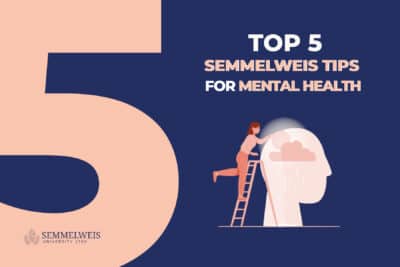People spend a third of their day sleeping, which shows how important sleep is for our health, said Dr. György Purebl, Professor and Director of the Department of Behavioral Sciences. He added that during sleep, we undergo extremely important biological and psychological changes. “European and North American studies show that one third of people experience sleep disorders lasting more than a month at least once in their lives. Even more people have a sleep disorder for a shorter period of time,” he pointed out.
1. If you sleep badly several times for more than a month, see a doctor.
According to Dr. György Purebl, if you don’t sleep well for a night or two, that is not necessarily a problem, but if you have difficulty sleeping for a whole month, it’s worth seeking medical advice. There is no need to visit a sleep center immediately, as causes of poor sleep such as high blood pressure or depression can be identified by a general practitioner. Sleep problems can also be a sign that there is something wrong with your body and how it works that needs to be corrected, or that there is something wrong with your lifestyle. In addition, lack of restful sleep itself can lead to problems. “Persistent sleep disorder over months or years increases the risk of many diseases: persistent lack of sleep can lead to obesity and increases the risk of type 2 diabetes and depression,” he said.
2. As long as you sleep well, don’t fret about it.
The average sleep length in Europe is 7-7.5 hours, but how much sleep each person needs can vary. According to the director, life situation and lifestyle also matter: if you are overworked, have a medical condition, or need to use your memory a lot in the exam period, you require more sleep. But some people can do well on less sleep: if you can concentrate, feel happy, creative, and cheerful on 6-7 hours of sleep, that means that amount is enough for you – so don’t fret about not getting sufficient sleep. However, if someone is tired, sleepy, and listless even after 10-12 hours of sleep, that means their sleep is of poor quality. Similarly, there are no hard and fast rules about sleeping conditions. The director suggests that everyone should experiment to see what room temperature and darkness are ideal for them for a good sleep. The same goes for mattresses and pillows: although there are differences in terms of orthopedics and rheumatology, as far as sleep is concerned, the best is the one that gives you the best sleep. “Ideally, you should be able to dissociate yourself from your environment. If you can sleep well only in your own room, only in a certain bed, you are putting your own sleep at risk because if your usual living conditions change even a little bit, your sleep quality will deteriorate. That is why we should try to sleep well regardless of all parameters,” Dr. György Purebl pointed out.
3. In case of poor sleep, try to wake up at the same time every day.
Our biorhythms strongly regulate our sleep – if you have a prolonged period of poor sleep, try to ‘anchor’ your morning wake-up time by getting up at the same time every day. Spending half an hour in the morning outdoors and moving around also has a positive effect on our biorhythms – even walking part of the way to work is beneficial.
4. Do something relaxing before bedtime.
It is important to prepare for rest in a relaxed environment: before going to sleep, try to do something that helps you unwind. This could be reading, for example. If you still can’t fall asleep, don’t toss and turn in bed, but get up – however, don’t go back to the same pleasant activity you did before going to bed, instead you should do something you don’t like. This teaches the mind that if it is not asleep, it will have something uncomfortable to do. Avoid using electronic devices that emit blue light (mobile phones, television, etc.) before going to bed.
5. Adopt a healthy lifestyle.
Get enough exercise, eat healthily, pay attention to stress and its management, and live as balanced a life as possible. A healthy lifestyle helps you have a relaxing sleep – just as there is no health without good sleep.
Read the first part of our series on lungs here; the part on keeping our joints healthy here; our advice on healthy eating here; and the part on brain health here.
Ádám Szabó
Translation: Dr. Balázs Csizmadia
Photos by Bálint Barta – Semmelweis University; iStock




